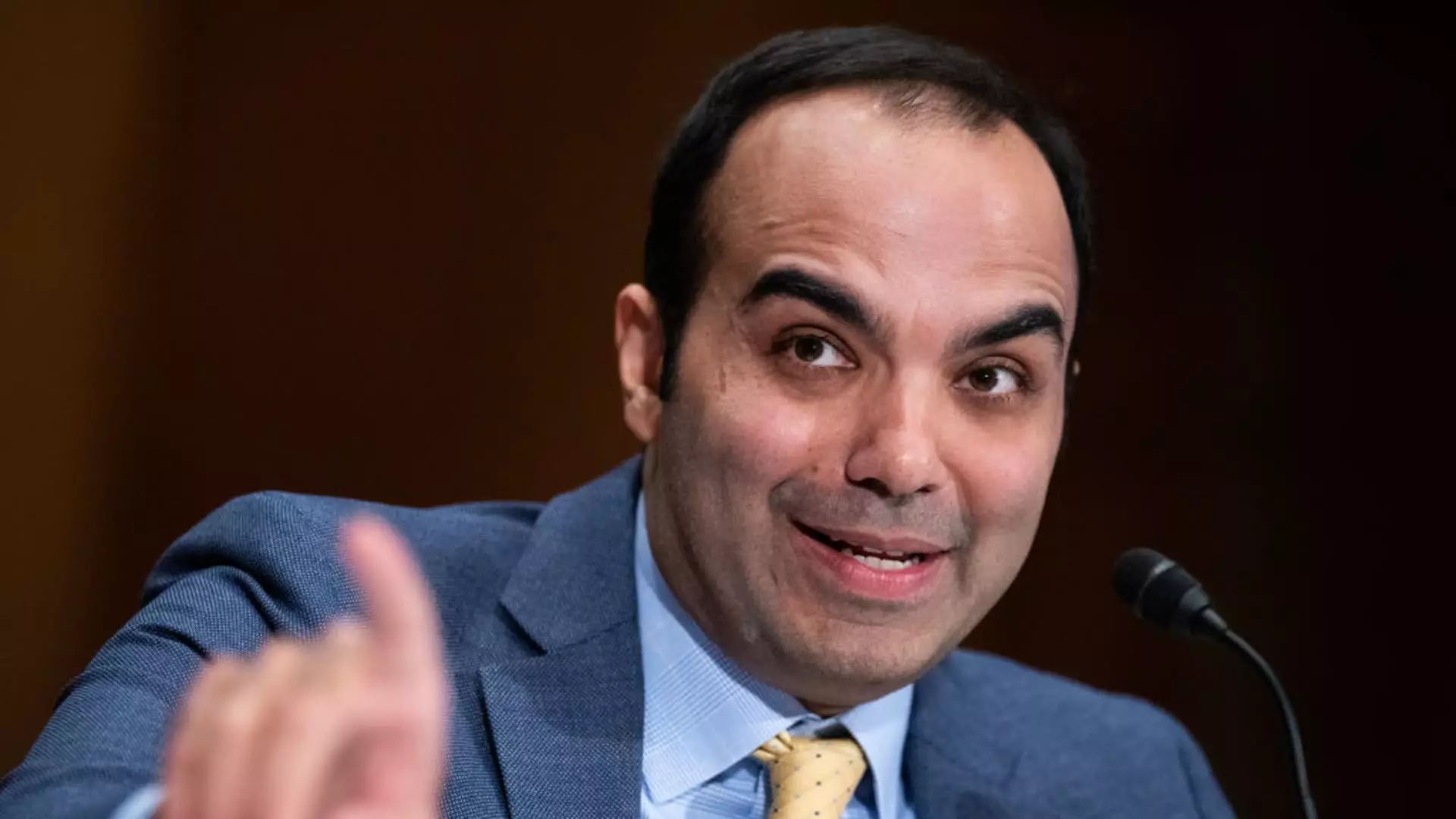The realm of digital finance has revolutionized how individuals and businesses conduct transactions, but not without giving rise to vulnerabilities that fraudsters exploit. Recently, the Consumer Financial Protection Bureau (CFPB) filed a significant lawsuit against the operator of the Zelle payments network, alongside three of the United States’ most prominent banks—JPMorgan Chase, Bank of America, and Wells Fargo. The core of the allegations revolves around inadequate handling of fraud complaints and failure to provide adequate reimbursement to customers, raising questions about the accountability of financial institutions in today’s digital landscape.
Since its inception in 2017, Zelle has rapidly become the leading peer-to-peer payment platform in the United States, boasting a staggering $806 billion in transactions last year alone. Yet, this convenience has not come without a cost. The CFPB claims that users of the platform have lost over $870 million to fraud, most notably linked to the services offered by the three banks mentioned. This lawsuit marks an escalation in scrutiny directed at financial institutions by the CFPB, particularly concerning their oversight of remote banking technologies and payment methods.
During a recent press briefing, CFPB Director Rohit Chopra emphasized that the urgency to stake a claim in the digital payments space led these banks to release Zelle without implementing robust consumer protection measures. As a result, the platform has allegedly become a “gold mine” for cybercriminals, he contended, leaving everyday users vulnerable and without recourse for their losses.
While the banks involved maintain that they thoroughly investigate each complaint of fraud, the details reveal a more complex situation. A July Senate report indicated that, out of the fraudulent claims reported, merely 38% were reimbursed by these institutions. Often, banks categorize claims as scams where customers authorized payments, thereby relieving themselves of the obligation to reimburse. This policy loophole raises ethical questions regarding consumer safety in a predominantly digital financial environment.
The banks assert that they are committed to defending consumer interests; however, the statistics tell a different story. Banks allegedly lag in addressing persistent fraud complaints, often ignoring the warnings that point to systemic flaws in the Zelle payment platform. Chopra expressed concern that even as thousands of customers reported issues, these financial giants failed to act decisively on the vulnerabilities that enabled fraud to flourish.
The CFPB’s assertions reveal a growing sentiment among lawmakers and regulators that traditional banks are not only inadequately prepared to battle emerging threats in digital finance but also reluctant to prioritize consumer protections over profit margins. The limited verification methods employed by Zelle are particularly alarming, as they seem to promote a false sense of security—users assume that their money is safe in a peer-to-peer network with little oversight.
Tom Peacock, director of global fraud intelligence at BioCatch, highlighted that Zelle’s design makes it increasingly attractive for fraudsters due to the speed of transactions. Once a payment is initiated, it is almost impossible to reverse, compounding the difficulties faced by victims seeking to reclaim lost funds.
In the wake of the lawsuit, Early Warning Services, the firm overseeing Zelle, defended its practices vehemently. In their statement, they characterized the CFPB’s allegations as “meritless” and contended that their reimbursement policies are already ahead of legal requirements. These assertions suggest a distinct fracture between regulatory bodies and the financial institutions they guide, complicating efforts to achieve comprehensive consumer protection.
Furthermore, Early Warning Services contended that the $870 million figure cited by the CFPB is misleading. They argue that it includes instances deemed as errors rather than outright fraud. They provided data indicating a decrease in reported scams alongside increased transaction volumes, suggesting an improving environment for consumers.
As we head into an increasingly digitized economy, this ongoing legal battle signifies a critical moment for the framework governing digital finance. The claims made by the CFPB against these banking giants extend beyond Zelle—they reflect broader concerns about the accountability of financial systems in protecting consumers against fraud. As both parties prepare for a drawn-out confrontation, it remains to be seen how the outcomes will shape consumer trust in digital payment systems and, ultimately, the federal oversight of financial institutions.
The lawsuit filed by the CFPB serves as a wake-up call for the banking industry. With shifting consumer reliance on digital payment methods, it is imperative that financial institutions prioritize safeguarding their clients against fraud, or risk facing severe repercussions from both regulators and their clientele. The balance of innovation and consumer protection will be crucial in shaping the future of digital financial services.

